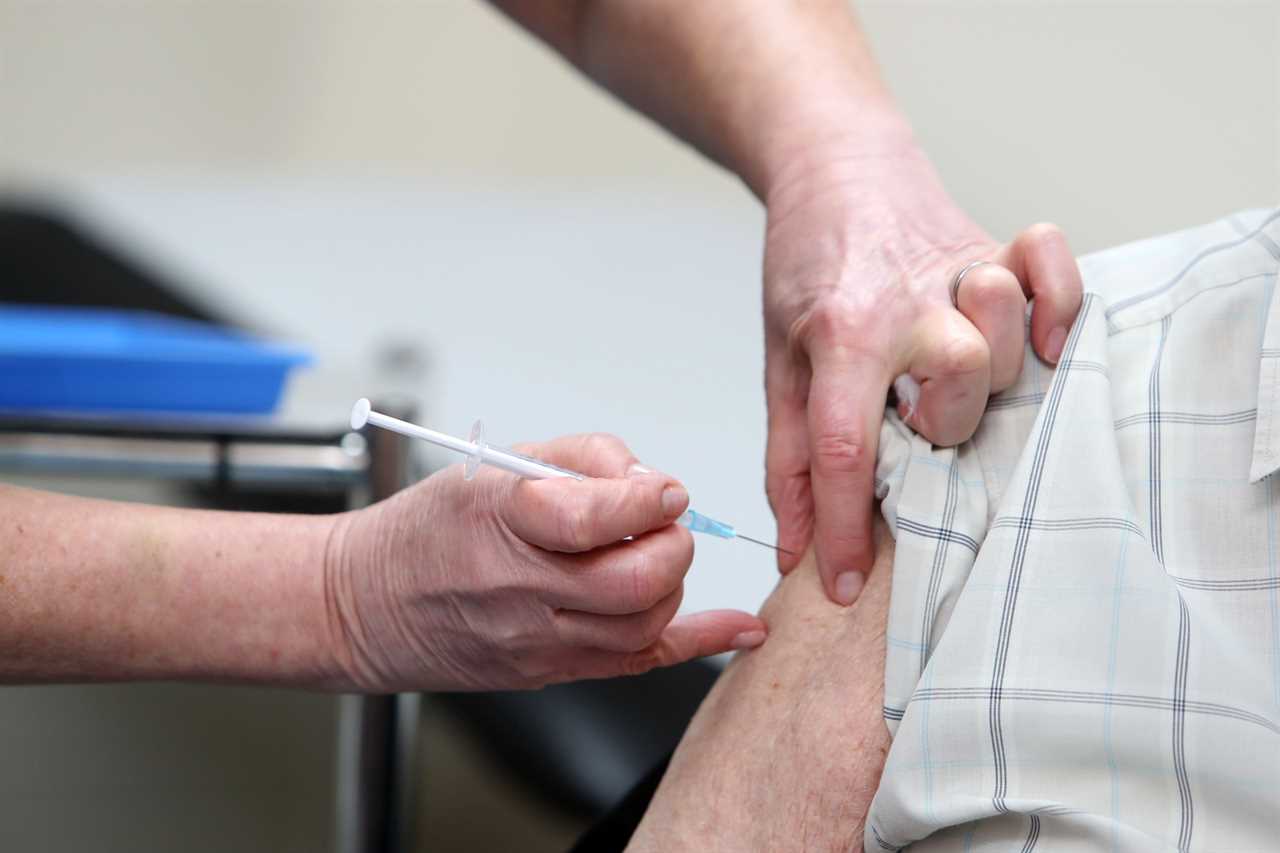THE most common side effects from Covid booster shots have been revealed.
They appear to be very similar to those reported after second doses were administered, and largely mild.

Researchers in the US looked at how people fared after getting their third vaccine.
They logged their symptoms on a mobile app designed to track the safety of jabs, with the seven most common side effects revealed.
Around 79 per cent had reactions at the injection site – pain, redness or swelling.
And 74 per cent said they suffered side effects like fever, headache, chills or joint pain.
However those who got Moderna seemed to have more arm pain compared to after the second injection.
These findings are very similar to the percentage who reported the same responses to their second dose.
The Centers for Disease Control and Prevention (CDC) found there are “no unexpected patterns” after boosters, which seem to be well-tolerated.
In America people over 65, or between 18 and 65 with underlying conditions or at high risk due to work, have been offered Pfizer boosters.
For the study period only immunocompromised people who had Pfizer or Moderna were able to get the third dose.
In Britain, booster jabs are now being rolled out to certain people.
Not everyone is eligible for the call up however, with only specific groups able to get the third dose.
Only people who are six months on from their second jab will be offered their third dose.
And it will only be offered to people who healthcare workers, are also over 50 or vulnerable.
People living in care homes can also get a shot when enough time has passed, as can over 16s with underlying health conditions, and adults who are immunosuppressed.
Three vaccines have been approved as safe and effective as Covid boosters – AstraZeneca, Pfizer and Moderna – by the drug regulator the MHRA.
But the JCVI have decided to opt for Pfizer as a preference after studies showed it is well tolerated and works well as a booster.
If necessary, Moderna may be used as an alternative, but as a half-dose.






